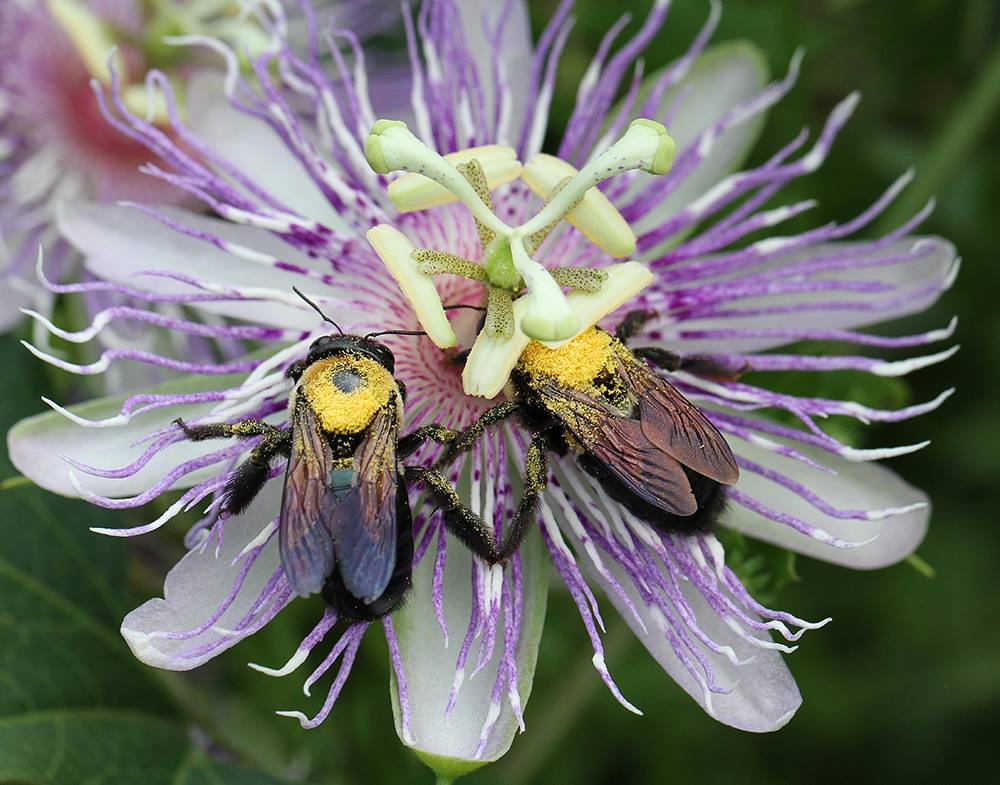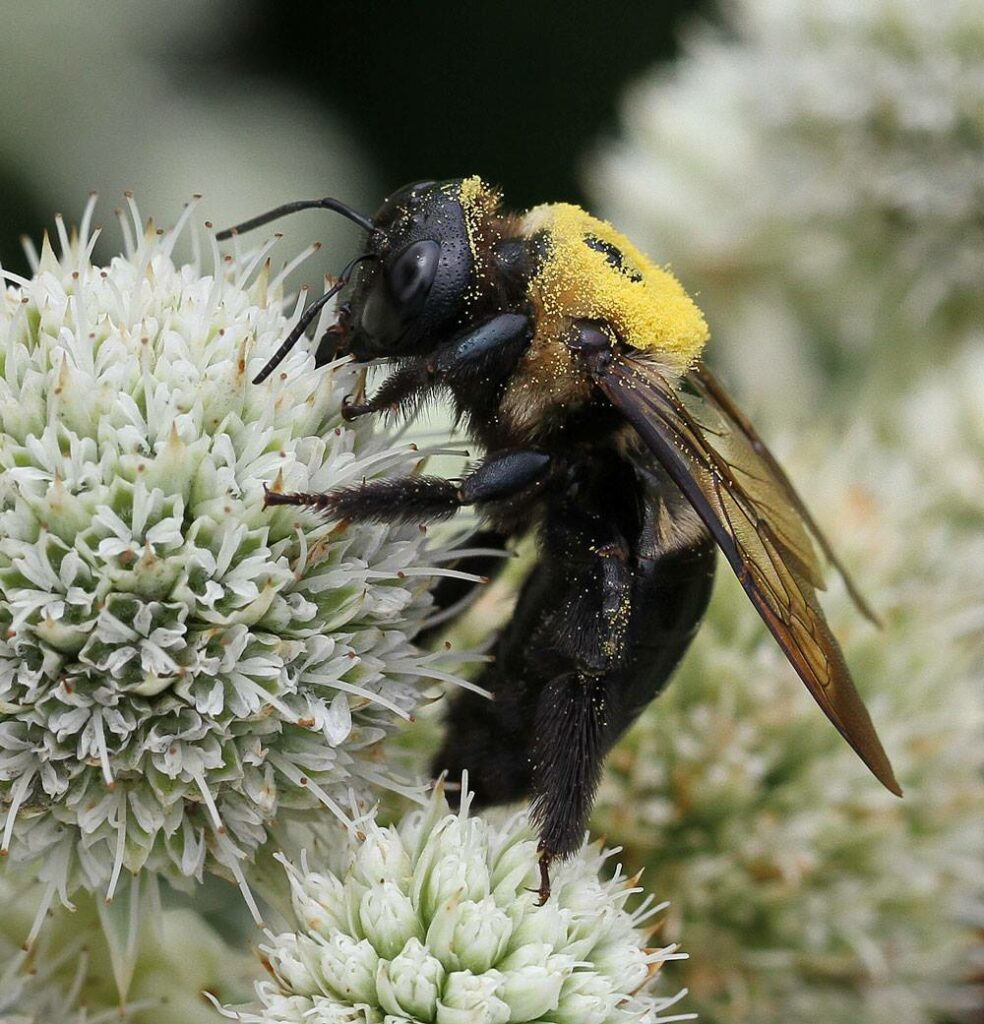Help NC State University Researchers Study Carpenter Bees
go.ncsu.edu/readext?847754
en Español / em Português
El inglés es el idioma de control de esta página. En la medida en que haya algún conflicto entre la traducción al inglés y la traducción, el inglés prevalece.
Al hacer clic en el enlace de traducción se activa un servicio de traducción gratuito para convertir la página al español. Al igual que con cualquier traducción por Internet, la conversión no es sensible al contexto y puede que no traduzca el texto en su significado original. NC State Extension no garantiza la exactitud del texto traducido. Por favor, tenga en cuenta que algunas aplicaciones y/o servicios pueden no funcionar como se espera cuando se traducen.
Português
Inglês é o idioma de controle desta página. Na medida que haja algum conflito entre o texto original em Inglês e a tradução, o Inglês prevalece.
Ao clicar no link de tradução, um serviço gratuito de tradução será ativado para converter a página para o Português. Como em qualquer tradução pela internet, a conversão não é sensivel ao contexto e pode não ocorrer a tradução para o significado orginal. O serviço de Extensão da Carolina do Norte (NC State Extension) não garante a exatidão do texto traduzido. Por favor, observe que algumas funções ou serviços podem não funcionar como esperado após a tradução.
English
English is the controlling language of this page. To the extent there is any conflict between the English text and the translation, English controls.
Clicking on the translation link activates a free translation service to convert the page to Spanish. As with any Internet translation, the conversion is not context-sensitive and may not translate the text to its original meaning. NC State Extension does not guarantee the accuracy of the translated text. Please note that some applications and/or services may not function as expected when translated.
Collapse ▲
Carpenter bees on native purple passionflower vine. Photo by Debbie Roos.
Graduate student Kate Gorman is working with Dr. Elsa Youngsteadt, Assistant Professor in North Carolina State University’s Department of Applied Ecology, to study carpenter bees and carpenter bee management. Kate has created an online survey to gather information about peoples’ experiences with carpenter bees, and current management practices for this species.
This survey is open to any adult living on private property in the United States. Even if you have never had carpenter bees on your property, your responses are still valuable.
If you decide to participate in this study, you will complete a 10-15 minute survey about the presence of eastern carpenter bees on the property where you live, any management techniques you already use, and which management methods you would prefer given multiple variables. Your participation in this survey will allow researchers and managers to develop safer, more cost-effective carpenter bee management options in the future.
Remember, this survey is completely voluntary. If you’d like to participate, simply click the link below. If you have any questions about the study, please email or contact Kate at carpenterbees@ncsu.edu.
Click here to complete the survey.
Visit Elsa’s Urban Ecology Lab website to learn more about their work.

Carpenter bee on rattlesnake master. Photo by Debbie Roos.


